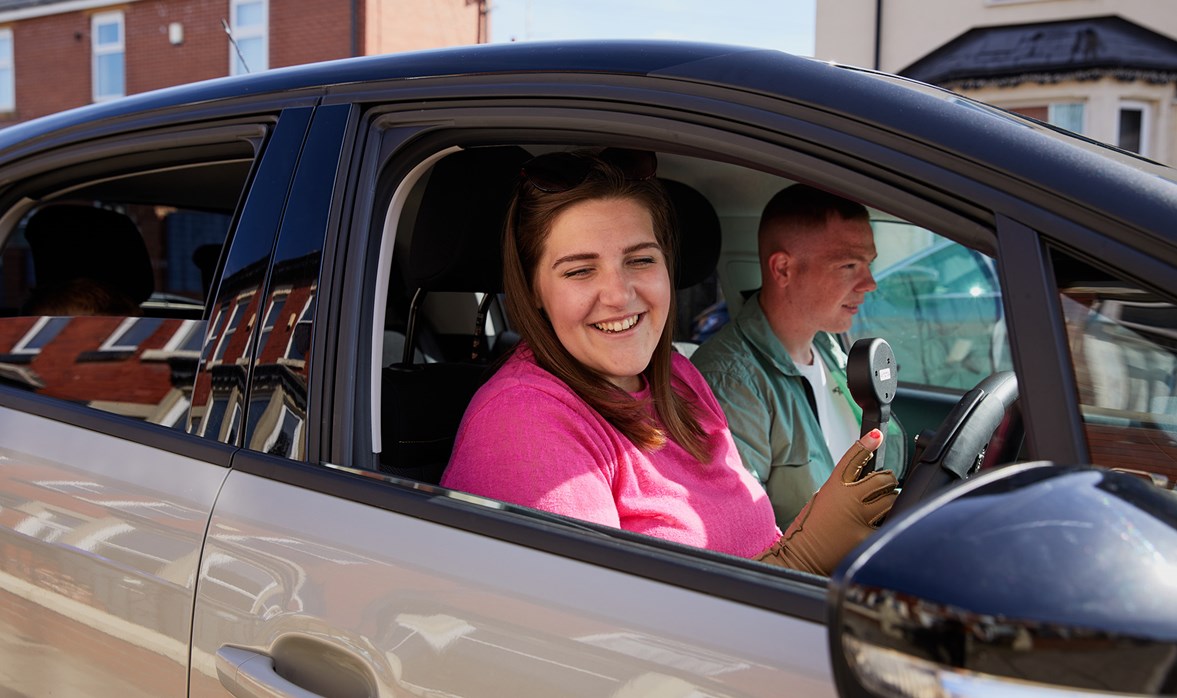Please note: The first round of funding is now closed. We will be open for applications in summer 2025.
We are committed to continuing our support for disabled people through the six grant programmes, using £50 million of the donation we received in 2023. This new funding will be available for charities and organisations, to apply for in summer 2025.
Through our Reducing Barriers to Driving Grant Programme, we have aimed to help charities and organisations to improve and expand private transport options for disabled people and their families beyond the Motability Scheme.
Examples of grant funding from this programme have included:
- Funding to raise awareness of driving as an option and of the support and adaptations that are available.
- Grants to expand the provision of driving and familiarisation lessons, and increase the number of instructors delivering lessons with adaptations.
- Funding to organisations to help reduce the cost barriers around access to vehicles and adaptations.
Why are we doing this?
In the UK, disabled people are less likely to have access to a car.
Our Rapid Evidence Assessment (REA) with NatCen (PDF 1.3 MB) found that only 54% of people with a mobility-impairing disability and just 39% of those with a long-term illness or disability have access to a personal car compared to 69% of the general population.
There are 14.6 million disabled people in the UK, and only 1.2 million are currently eligible to use the Motability Scheme because they receive a higher rate mobility benefit.
Of those who are eligible, our research with Transport Research Laboratory (TRL) found that a significant group of people who are eligible choose not to join the Scheme because they are not able to drive. There are also many other factors which influence their decision not to use the Scheme, including the cost of living, the availability of suitable parking, and only needing to make limited journeys.
Many disabled people, their families or carers, and referral organisations, are not aware that driving is an option, or of the support and adaptations that are available.
At the same time, our secondary analysis of the National Travel Survey (NTS) with NatCen showed that 83% of disabled people who cannot drive do not think they will ever learn.
We carried out research on the effect of Covid-19 on transport for disabled people. Findings indicate that while the majority of participants have returned to at least some of their pre-pandemic travel behaviours, a lack of confidence in doing so remains a key challenge to overcome.
Long waiting lists, combined with a lack of driving instructors delivering lessons with adaptations, are resulting in low availability of driving lessons, including familiarisation, with adaptations.
High cost of vehicle ownership, lease or rental options, and that of adaptations and specialist equipment reduce the opportunities for disabled people to access vehicles that meet their needs beyond the Motability Scheme.

